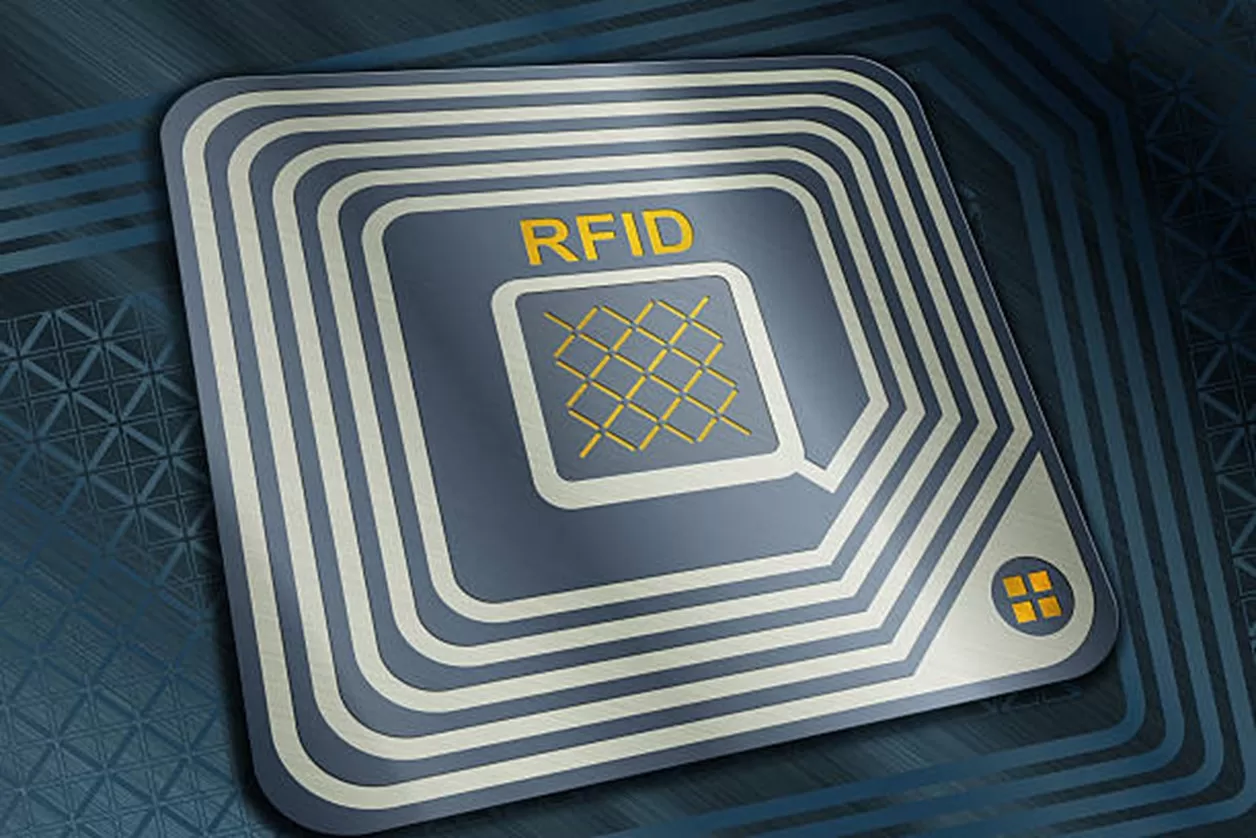RFID technology is a popular solution for tracking and managing items/assets across various industries. But is it suitable for every business or sector? This blog explores how well RFID fits into different industries, highlighting those where it is best suited, moderately suited, and less commonly suited. By understanding where RFID works best, businesses can make informed decisions about whether or not to adopt it.
Industries Where RFID is Best Suited :
These industries benefit the most from RFID technology because it significantly improves their operations, security, and management.
1. Retail :
How RFID is Used :
-
Automated Stock taking :
In a lot of retail stores, RFID is used for stock-taking. RFID tags are attached to each product, and these tags contain unique information about the item. Employees can use handheld RFID readers to quickly scan large numbers of items on shelves or in storage, without needing to physically touch or individually scan/count each product. This makes the stock-taking process much faster and more accurate compared to traditional methods.
-
RFID Billing Stations :
In stores with RFID-powered billing stations, staff can place multiple items on the counter at once. The system automatically reads the RFID tags on all the products simultaneously, allowing for faster billing without manually scanning each item one by one. This speeds up the checkout process and reduces wait times for customers.
-
Self-Checkout :
RFID also enables self-checkout systems where customers can scan their own items. Customers place the items on the self-checkout counter, and the RFID reader automatically identifies the products. Once all items are scanned, customers can proceed to pay for them directly, reducing the need for cashier assistance .
-
Security :
RFID plays a crucial role in retail security. RFID security gates at store exits detect if an item with an RFID tag has not been properly checked out,If an unbilled item goes out it will alert the staff with an alarm helping prevent theft.
-
Customer Experience :
Some advanced stores use RFID in smart fitting rooms, where items brought into the room are automatically detected, providing product information, size availability, and even personalized recommendations to customers.
Why Best Suited :
Retail handles a large volume of products daily, and RFID simplifies this by enabling real-time inventory tracking, bulk scanning without line-of-sight, and faster stock-taking, billing, and self-checkout. It reduces human error. Additionally, RFID-enabled security gates help detect unpaid items, reducing theft. This makes RFID highly effective for managing retail operations efficiently.
2. Libraries
How RFID is Used :
Libraries implement RFID technology for the management of book circulation and inventory. Each book is tagged with an RFID label, allowing for quick processing. Patrons can check out books at self-service kiosks, which significantly reduces wait times.
For inventory management, staff can use handheld RFID readers to scan multiple books in the shelves, making stock-taking faster and more accurate without the need to manually handle each item. Additionally, staff stations equipped with RFID technology enable librarians to issue/return /renew multiple books simultaneously. Additionally, RFID security gates are installed at library exits to prevent theft. These gates detect any items that haven’t been properly checked out, ensuring that all materials are accounted for before leaving the premises.
Why Best Suited :
Libraries manage vast collections of books and materials, often numbering in the thousands and lakhs .RFID technology is particularly well-suited for this environment as it improves tracking and management efficiency. By automating processes like check-outs and inventory management, RFID reduces the workload on librarians and allows them to focus more on customer service and community engagement. Furthermore, the added security measures help protect library assets, ensuring that no items leave the library without proper checkout. This combination of efficiency and security makes RFID an ideal solution for modern Libraries.
3. Manufacturing
How RFID is Used :
In manufacturing, RFID tracks parts and components on the assembly line, ensuring everything is in the right place at the right time. It also helps manage inventory levels for raw materials and finished products, giving manufacturers a clear view of their stock.
RFID systems can automate processes, like quality checks, and alert workers if parts are missing or incorrect.
Why Best Suited :
Manufacturing is all about precision and timing. RFID’s ability to track parts and materials in real-time reduces errors, minimizes production downtime, and ensures smooth operation across the supply chain. It helps factories move closer to the concept of a "smart factory" with automated tracking and management.
4. Jewellery
How RFID is Used :
Jewellery stores use RFID technology to track high-value items such as rings, necklaces, and bracelets with precision. RFID tags can be discreetly embedded in individual jewellery pieces or in the trays holding them, enabling real-time updates on stock levels and item locations throughout the store. This not only helps with inventory control but also minimizes the risk of misplacement or loss.
Additionally, smart inventory trays equipped with RFID readers can automatically display product information as jewellery is placed in them, offering staff and customers instant details like pricing, material, and availability.
On the security front, RFID plays a crucial role. RFID-enabled security gates are installed at store exits, ensuring that no item leaves the store without being properly checked out. If an item with an active RFID tag passes through the gate without authorization, an alarm is triggered, helping to prevent theft and loss of expensive jewellery.
Why Best Suited :
Jewellery stores often deal with small, high-value items that are easy to misplace or steal. RFID’s precision makes it ideal for tracking these items. It ensures quick stock checks, offers real-time tracking, and provides security, making it indispensable in the jewellery sector.
5. Logistics and Warehousing
How RFID is Used :
In logistics, RFID tracks shipments, manages stock levels, and streamline the receiving and dispatch processes. Tags are attached to goods and are scanned automatically as they move through the supply chain.
It allows real-time updates on the location and status of products, reducing delays and ensuring accurate delivery.
Why Best Suited :
Warehouses handle a massive volume of goods, and RFID helps overlook the entire process by automating inventory tracking and reducing manual labour. It improves accuracy, speeds up stocktaking, and reduces the risk of misplaced items or incorrect shipments. In a fast-moving supply chain, RFID ensures real-time updates, making it highly valuable.
Industries Where RFID is Moderately Suited :
These industries can benefit from RFID, but its full potential might not be realized without additional systems or in certain conditions.
1. Healthcare :
How RFID is Used :
Hospitals and healthcare institutions use RFID to track medical equipment, manage patient records, and monitor the movement of critical supplies like medicines.
RFID wristbands for patients are also used to provide accurate identification and track their treatment progress.
Why Moderately Suited :
While RFID can significantly improve asset tracking and patient safety in healthcare, it requires integration with other systems like hospital management software. Additionally, the cost of setting up RFID in healthcare can be high, especially for smaller institutions, which may limit widespread adoption. However, in larger hospitals, RFID proves invaluable for tracking high-value medical devices and ensuring patient safety.
2. Textile and Apparel :
How RFID is Used :
RFID helps in tracking garments throughout the production and distribution process, managing inventory, and preventing theft in retail settings.
In sustainable fashion, RFID tags are used to track items for recycling and reuse, supporting circular economy practices.
Why Moderately Suited :
While RFID can help with stock management and reduce theft, smaller textile businesses may not require such advanced tracking systems. In larger apparel chains, RFID is beneficial and often complements other systems like barcodes for complete inventory management. The slightly high cost of RFID tags compared to traditional labels might be a limiting factor in adoption for small scale textile stores.
3. Education :
How RFID is Used :
RFID is widely used in schools and colleges for attendance tracking, library management, and campus security. RFID-enabled ID cards allow students and staff to check in and out of classrooms, labs, and other campus facilities automatically, making attendance tracking easy. In libraries, RFID tags are used to manage book circulation, and inventory control.
Moreover, RFID technology improves campus security by restricting access to sensitive areas like labs, administrative offices, and restricted zones. Students and staff can only access these areas using their RFID cards, ensuring that only authorized individuals enter.
Why Moderately Suited :
Smaller educational institutions may find manual systems or simpler technologies sufficient for their needs.
Industries Where RFID is Less Suited :
RFID can be useful in these industries, but it is not essential and might not provide enough benefits to justify the cost of implementation.
1. Agriculture :
How RFID is Used :
RFID tags can be attached to livestock for tracking, or used to monitor equipment and manage resources like fertilizers and seeds.
RFID can also help in tracking crops and ensuring the proper distribution of produce to markets.
Why Less Suited :
While RFID helps track livestock and manage farm resources, its usage in core agriculture is often limited and expensive for smaller farms. GPS-based systems or IoT sensors may provide more value for crop monitoring, reducing the need for RFID.
2. Tourism & Hospitality :
How RFID is Used :
Hotels use RFID for keyless room entry, tracking guest preferences, and managing luggage. RFID cards allow guests to access their rooms without traditional keys.
Some theme parks use RFID-enabled wristbands to track visitors and manage entry to rides or attractions.
Why Averagely Suited :
RFID improves the guest experience by providing convenience, but its application is limited to specific areas like access control and luggage management. Many hotels and resorts already use alternative systems, so RFID may not be critical for the industry. Moreover, the cost of implementing RFID throughout a large hotel chain could be prohibitive.
RFID technology is versatile and provides immense value across various industries, but it isn’t a one-size-fits-all solution. It is best suited for industries that handle high volumes of items or require strict security and tracking, like retail, manufacturing, libraries, and jewellery. In other sectors like healthcare, textiles, and education, RFID can provide valuable support, but the technology may need to be combined with other systems to maximize efficiency. Finally, in industries like agriculture, tourism, RFID’s role is more limited, and its adoption depends on specific needs and project scale.
By understanding the fit of RFID for your industry, businesses can make smarter decisions on whether to invest in RFID technology and how to optimize its use.

